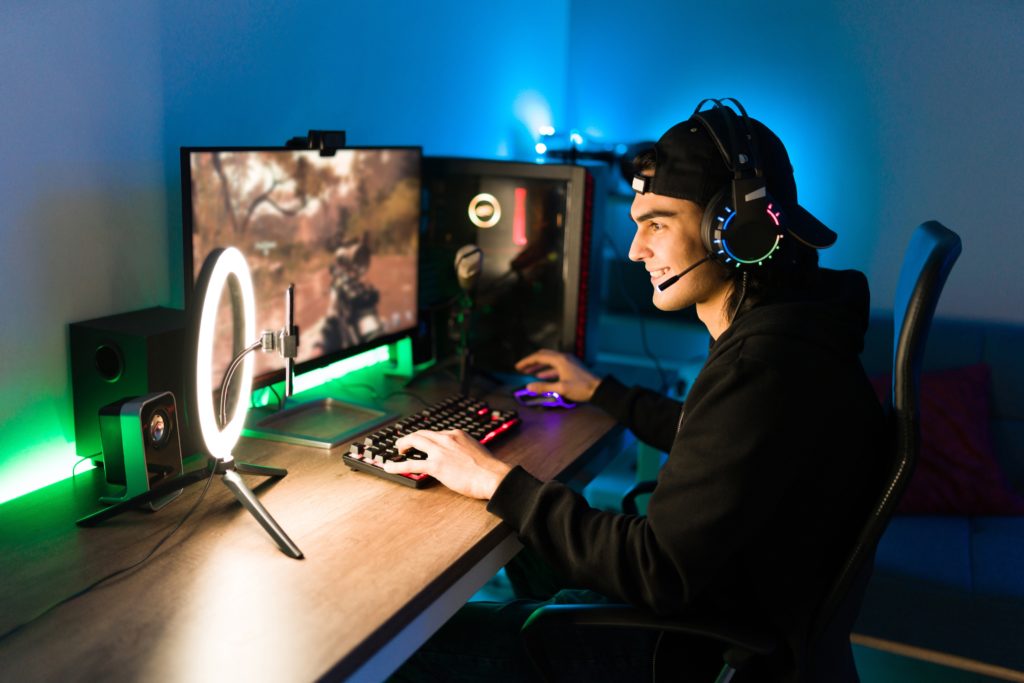Quick Hits
Daily brief research updates from the cognitive sciences

Iconsidered many titles for this short review. It could have read “Gaming Improves Mental Health of Teenagers” – that may have garnered a few more clicks – not stricly true though. It could also have read “Gaming Has No Impacts on Mental Health of Teenagers”, however, the data can be seen in two ways.
So, I settled on the simple question so as not to mislead too much. But the long and short of it is that we do not need to be overly concerned with gaming rotting our kids’ brains, causing emotional withdrawal, and a host of mental health problems. In the vast majority of cases there is no impact and in a sizable proportion heavy gaming seem to improve mental health! So, let’s dig into what this study did and didn’t find.
This data comes from the 2021 OxWell survey which analysis data from surveys of school children between 12 and 18 in the UK. This dataset had 12’725 participants. And what did they find?
They found that:
- 31.2% play games for at least 3.5 hours a day – this is the “heavy gamer” group
- There was no significant correlation between playing games and mental health issues
- 8% reported not gaming
- They classified 6 types of gamers
- 8% were classed as maladaptive (i.e. experience negative effects)
So, on average no real cause for concern. However, there are some surprising and worrying results also. One surprising result is that 44% of heavy gamers experienced higher well being than those who games less or not at all. Who would have though it? On the negative side there is, indeed, a subgroup who do experience negative effects. A small proportion of the heavy gamers experience a loss of control and wellbeing issues.
A notable subgroup was the 2% who are classed as maladaptive phone gamers, playing mostly on their phone, being mostly female, and are more likely to have experienced abuse and other traumatic events. This seems to point that traumatic life experience are pushing some individuals to maladaptive behaviours – and this also opens the door to intervening and being able to identify these and hence also pre-empt the issues.
It therefore seems that gaming is not the cause of mental health issues but can contribute to underlying issues. Of course, the argument could also be that gaming reduces other activities and so can also over longer terms have a negative impact. However, I reported here that those who spent most time on social media were also most social in person – also a surprise. Whether this translates over to gaming, I don’t know, but good to know at least.
But for now, we know that gaming shouldn’t be a worry for parents or others in society, but we do need to be able to identify and support those who are prone to maladaptive behaviours – be that in gaming, or other areas.

Andy Habermacher
Andy is author of leading brains Review, Neuroleadership, and multiple other books. He has been intensively involved in writing and research into neuroleadership and is considered one of Europe’s leading experts. He is also a well-known public speaker, speaking on the brain and human behaviour.
Andy is also a masters athlete (middle distance running) and competes regularly at international competitions (and holds a few national records in his age category).
References
Simona Skripkauskaite et al
Time Spent Gaming, Device Type, Addiction Scores, and Well-being of Adolescent English Gamers in the 2021 OxWell Survey: Latent Profile Analysis”
JMIR Pediatrics and Parenting, 18.11.2022
https://pediatrics.jmir.org/2022/4/e41480/
More Quick Hits
How Meditation Helps Pain In Your Brain
Quick HitsDaily brief research updates from the cognitive sciences es, meditation can help with pain by changing your experience of it. I reported on that here. Another piece of research just published shows that how experienced meditators and...
When Stress Is Good For Brain Functioning
Quick HitsDaily brief research updates from the cognitive sciences tress gets a bad rap – understandably it is a negative experience and has been shown over long periods of time, and with high intensity, to cause multiple negative outcomes, from...
Put Your Smartphone Down and Let your Mind Wander – You’ll Be Happier
Quick HitsDaily brief research updates from the cognitive sciences here’s a lot been said about smartphone usage and how it can be used and abused. Most of this concern revolves around usage in children or teenagers, however, with some research...
The Amazing Impact Of Reaching Out To Your Old Friends
Quick HitsDaily brief research updates from the cognitive sciences few weeks ago a friend I hadn’t seen for about 10 years sent me a message and asked if I had time to meet up. I was elated. "Sure," I immediately messaged back, "when and where?!"...
Really? Belief In Conspiracies Not Increasing
Quick HitsDaily brief research updates from the cognitive sciences e may feel like we’re in an age of conspiracy theories, that social media is turbocharging the wild and wacky theories, and the so-called information bubbles are sending people down...
You Wake Up 100 Times Each Night – And That Helps Memory
Quick HitsDaily brief research updates from the cognitive sciences have written numerous posts and articles on sleep and the brain (review here), and the evidence is crystal clear. Good and consistent sleep is essential to all aspects of physical...






